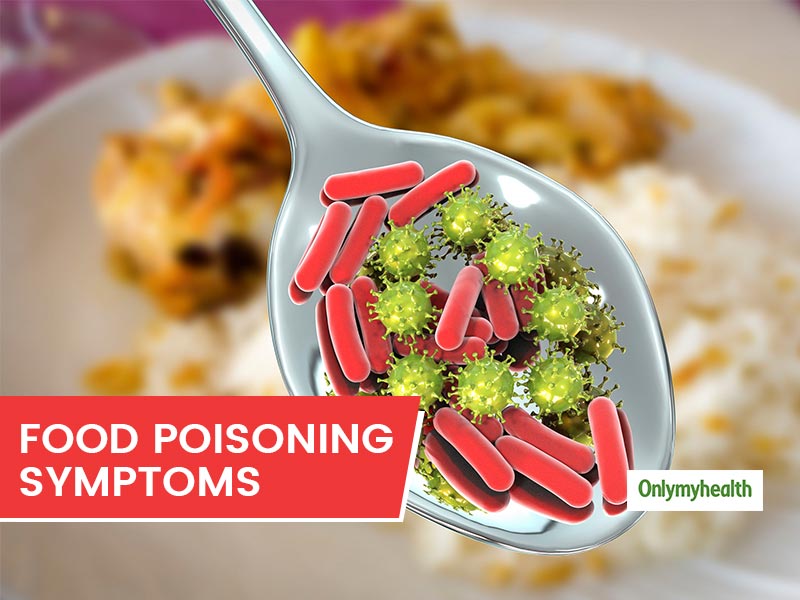
Eating street food has its share of fun but comes with its share of illnesses too. In today's time, many types of diseases occur due to eating unhealthy and unknown. It is a must for all to ensure that whatever they are eating is clean and hygienic. There are times when you eat outside food and consumption of contaminated food can lead to various symptoms like vomiting, nausea, etc. Signs and symptoms of food poisoning may develop after a few hours to many days after eating contaminated food (ranges from one hour to 70 days). Symptoms after eating contaminated food depend on several factors, such as the type of contaminant and the amount consumed. The symptoms can progress rapidly, (within a few hours) or slowly, worsen over days to weeks.
Table of Content:-

Also Read: Understanding Diarrhoea: Here Are Common Symptoms Of Diarrhea That You Should Know About
Food poisoning is caused by infection due to most common microorganisms like Entamoeba, Giardia, Campylobacter, Shigella, Salmonella, Listeria, and norovirus.
Symptoms of Food Poisoning
In most cases, symptoms develop after 1-3 days, and the common ones are:
- Nausea
- Vomiting
- Diarrhoea
Other symptoms which may occur in a person who has food poisoning are:
- Cramps and pain in stomach
- Lack of hunger and Loss in appetite
- Fever-like temperature
- Muscle pain
- Chills
How Does Food Poisoning Happen?
There are many reasons for food poisoning. Bacteria or viruses usually cause them. These bacteria or viruses can reach our stomach in many ways, such as by eating undercooked pr contaminated food. In short, contaminated food is one of the significant reasons for getting food poisoning. The stale food kept in storage for more than two to three days is enough to cause damage in any season. Summer is a typical season for food poisoning as there are more chances for the food to become stale because of excessive heat. Junk food is also a common cause of food poisoning in several cases:
Food Poisoning and Dehydration
Food poisoning brings with it repeated episodes of diarrhoea. Repeated diarrhoea and vomiting in food poisoning can cause dehydration (loss of fluids and electrolytes). Loss of electrolytes and water from the body can affect the amount of water in the body, electrolyte balance (such as sodium and potassium), and other essential functions. If dehydration is not treated appropriately and promptly, it can become a severe complication of food poisoning. Dehydration can cause serious health problems, such as organ damage, shock, or coma.
Symptoms besides diarrhoea, vomiting and pain in the abdomen which may occur in food poisoning because of toxins include:
- Neurological symptoms such as difficulty in speaking, trouble in swallowing, double vision, and muscle weakness that progresses downward
- Excessive sweating, shaking, hallucinations and coma
- Difficulty in breathing or shortness of breath
- Swelling of the tongue and mouth
- Shaking or tremors of the arms and legs
- Fast heartbeat
- Muscle pain and weakness

Also Read: Involuntary Movements Can Be Dystonia. Know All About This Neurological Disorder
Tips To Prevent Food Poisoning
Here are some tips to prevent food poisoning as told by Dr Poonam Sachdev, MD - Pediatrics, MBBS:
- Vegetables and fruits should be washed with saltwater before consuming and cooking.
- The kitchen should be kept clean. Knives and cutting boards should be washed daily with soap.
- The fridge should be cleaned from inside with soapy water.
- It is important to always clean meat thoroughly before cooking.
- Do not keep cooked food in the refrigerator for too long.
- Avoid foods to store that contain raw milk.
- Avoid eating seafood, especially in this season.
- Drink clean water.
- After touching any infected or dirty thing, wash hands with soap and water. Wear gloves when cleaning dirty clothes or household dirt.
What To Do When Suffering From Food Poisoning
- When suffering from food poisoning, keep drinking plenty of water.
- If having vomiting and diarrhoea, then only consume liquids and do not eat such food which has to be chewed.
- Drink lukewarm water and eat as little spice as possible. If abdominal pain is unbearable, then get an ultrasound done in consultation with a specialist.
- Due to diarrhoea and vomiting, sodium, potassium and other minerals are reduced along with water from the body. Take ORS with water for instant energy. Salt and sugar solution is also very beneficial in such a situation.
- Eat food on time. Immediately stop using liver-damaging substances like alcohol, painkillers, fever medicines etc. and get your liver checked.

Also Read: Pneumonia Prevention: Dr Poonam Sachdev Explains How Can One Prevent Pneumonia
Other Remedies For Food Poisoning
- Drink a cup of ginger tea after afternoon and evening meal. Ginger has anti-inflammatory properties and is helpful in healing.
- Apple cider vinegar has alkaline effects on our body, and it removes many symptoms of food poisoning. Therefore, dissolve two spoons of apple cider vinegar in one cup of hot water and drink before meals.
- Fenugreek seeds help cure an upset stomach. Eat the same with curd for maximum benefit.
- By eating pure honey mixed with cinnamon powder, every stomach related problem can be reduced. This recipe is also effective in relieving gas problems.
- To get rid of stomach infection, put one teaspoon of turmeric powder and 6 teaspoons of honey in a jar and keep it closed. After two days, eat half a teaspoon twice or thrice a day.
With inputs from Dr Poonam Sachdev, MD - Pediatrics, MBBS
Read more articles on Other Diseases
How we keep this article up to date:
We work with experts and keep a close eye on the latest in health and wellness. Whenever there is a new research or helpful information, we update our articles with accurate and useful advice.
Current Version